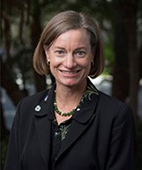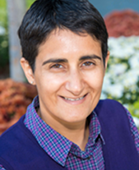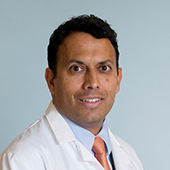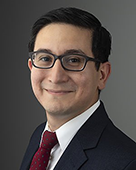For more information:
Email UsWe all are impacted by, and reap the benefits of, medical research discoveries. From over-the-counter drugs, to healthcare policies and educational interventions, many of these advancements are a result of incredible feats, decades of work, and sometimes serendipitous events. Join us as we sit down with Harvard researchers to discuss these captivating behind-the-scenes stories of research.
January 27, 2021
Systematic Impacts of Weight Discrimination
“42.4% of U.S. adults have the disease of obesity,” says Fatima Cody Stanford, obesity medicine physician scientist, educator, and policy maker at Massachusetts General Hospital and Harvard Medical School. Stanford discusses her research and policy work on obesity and weight discrimination laws.

Fatima Cody Stanford, MD, MPH, MPA, FAAP, FACP, FAHA, FTOS, is an obesity medicine physician scientist, educator, and policy maker at Massachusetts General Hospital (MGH) and Harvard Medical School (HMS). She is a national and international sought-after expert in obesity medicine who bridges the intersection of medicine, public health, policy, and disparities.
Stanford received her BS and MPH from Emory University, MD from the Medical College of Georgia School of Medicine, and MPA from the Harvard Kennedy School of Government. She completed her obesity medicine and nutrition fellowship at MGH/HMS after completing her internal medicine and pediatrics residency at the University of South Carolina.
January 6, 2021
A National Stage for Reviewer Exchange
“External scientific review gives us a better chance of identifying proposals that might have a big impact on the wellbeing of our community,” says Margaret Schneider, director of the Pilot Studies program at the University of California Irvine. Schneider discusses her role in the creation of the CTSA External Reviewer Exchange Consortium (CEREC), which coordinates scientific review for funding applications submitted to centers that are part of the national NIH-funded CTSA consortium, which includes Harvard Catalyst.

Margaret Schneider, PhD, is a research professor in the Department of Planning, Policy and Design within the school of social ecology at the University of California, Irvine (UCI). She is also associate director and director of evaluation and pilot studies within the Institute for Clinical and Translational Science at UCI. Schneider has conducted independent and team-based research into obesity prevention among adolescents, particularly among youth who are at risk by virtue of economic circumstances and/or physical inactivity. For the past eight years, she has directed the tracking and evaluation efforts for UCI’s Clinical and Translational Science Award (CTSA), and has recently taken on the additional responsibility of running the Pilot Award program funded through the CTSA.

Hardeep Ranu, PhD, is a project manager for Translational Innovator and is responsible for managing a diverse set of clinical and translational research project teams. Ranu joined Harvard Catalyst from Harvard T.H. Chan School of Public Health, where she managed the TaqMan genotyping core for 13 years. As the genotyping project manager, Ranu worked with faculty of Harvard Medical School, Chan School of Public Health, Harvard Medical School affiliated hospitals, and external institutions to design and develop genotyping projects. Her role as genotyping project manager involved coordinating with two funding entities, the Dana-Farber/Harvard Cancer Center (DF/HCC) and Partners Healthcare|Personalized Medicine as well as working with senior management and faculty from DF/HCC to write and prepare reports for DF/HCC submissions and renewals.
December 16, 2020
Early Detection of Cerebral Adrenoleukodystrophy
Florian Eichler, MD, discusses his work studying childhood cerebral adrenoleukodystrophy (ALD), a progressive demyelinating disease of the brain. Eichler is director of the Center for Rare Neurological Diseases at Massachusetts General Hospital, and part of a team that recently received pilot funding from us to improve early detection of this disease.

Florian Eichler, MD, is the director of the Center for Rare Neurological Diseases at Massachusetts General Hospital. He is a neurologist who leverages the biology of single gene disorders which affect the nervous system to develop treatments for leukodystrophies and hereditary neuropathies. Eichler aims to accelerate progress and treatment for rare conditions by identifying knowledge gaps and creating partnerships.
December 2, 2020
Delivering Better Glaucoma Solutions
“Glaucoma is one of the leading causes of blindness in the world,” says David Friedman, director of the glaucoma service at Mass Eye and Ear. Friedman discusses his current Harvard Catalyst pilot grant to improve glaucoma treatment by studying a contact lens that can deliver medication.

David Friedman, MD, PhD, MPH, is director of the glaucoma division, medical director of clinical research, and the Alfred and Diane Kaneb Professor of Ophthalmology at Massachusetts Eye and Ear. His research has focused on angle closure glaucoma, ophthalmic epidemiology, and glaucoma therapy, with an emphasis on medication adherence among glaucoma patients. He is renowned for his contributions to the study of the mechanisms, epidemiology, and prevention of angle-closure glaucoma. Over the last 20 years he has worked closely with researchers in Singapore, Guangzhou, Beijing, and South India.
November 18, 2020
The Vision System and Psychosis
“Hallucinations are often associated with greater delusions, which leads to poor performance in processing visual information,” says Paulo Lizano, MD, PhD, professor of psychiatry at Harvard Medical School. Lizano discusses his recent Harvard Catalyst pilot grant to improve visual processing in patients with schizophrenia and other psychoses using non-invasive brain stimulation.

Paulo Lizano, MD, PhD, is an instructor of psychiatry at Harvard Medical School. His research focuses on utilizing imaging, blood-based biomarker technology, and neuromodulation to better characterize and offer potential interventions in serious mental illness, specifically idiopathic psychotic disorders. Lizano’s long-term goal is to become an established academic neuropsychiatric researcher who identifies both diagnostic and prognostic biomarkers, as well as novel treatment targets for patients living with psychosis, particularly those in the early stages.
November 4, 2020
Modern Tech for Vision Worldwide
“For vision-impaired people, visual aids are very important and can be lifesaving,” says Gang Luo, PhD, Schepens Eye Research Institute. Luo discusses the expense of these aids for patients – more than $15,000 – and his Harvard Catalyst pilot grant to develop a free smartphone app to detect myopia.

Gang Luo, PhD, is an associate professor at the Schepens Eye Research Institute and Harvard Medical School. His primary research interests include vision science, vision assistive technology, and vision care technology based on mobile platform. He received his PhD from Chongqing University, Chongqing, China.
October 21, 2020
Community Engaged: Homelessness and COVID-19
Special guest host Karen Emmons, PhD, faculty lead for our Community Engagement program, interviews Sheila Dillon, chief of Housing and director of Neighborhood Development for the City of Boston, and Jessie Gaeta, chief medical officer for Boston Health Care for the Homeless Program. Dillon and Gaeta discuss their combined efforts to help protect Boston’s homeless population from COVID-19. This episode was produced in partnership with the Harvard T.H. Chan School of Public Health’s Initiative on Health and Homelessness.
This episode was produced in partnership with the Harvard T.H. Chan School of Public Health’s Initiative on Health and Homelessness and was recorded on August 28, 2020.

Jessie M. Gaeta, MD, is the chief medical officer of Boston Health Care for the Homeless Program (BHCHP), where she has practiced internal medicine since 2002. She oversees the clinical practice of this unique community health center that serves 12,000 people annually across dozens of clinical sites, including homeless shelters, the street, and one of the first medical respite programs in the country. Gaeta also directs BHCHP’s Institute for Research, Quality, and Policy in Homeless Health. Her passions include ending homelessness and bending the curve on overdose deaths.

Sheila Dillon, MBA, cabinet chief of housing and director of the Department of Neighborhood Development for the City of Boston, is a member of Mayor Martin J. Walsh’s cabinet and acts as advisor on housing issues in the city. She oversees the management of the Boston Home Center, the Neighborhood Housing Development team, the Real Estate Management and Sales team, and spearheads the city’s efforts around housing Boston’s homeless. In addition, she leads the Office of Housing Stability, and is charged with protecting residents’ tenancies in Boston’s competitive real estate market.

Karen Emmons, PhD, is professor of social and behavioral science at the Harvard T.H. Chan School of Public Health, and faculty lead of Harvard Catalyst’s Community Engagement program. She is a behavioral scientist with a strong track record of funded research in community-based approaches to cancer prevention in a variety of settings that serve under-resourced communities, including low income housing and community health centers. Her work targets a range of cancer risk factors, including nutrition, physical activity, sun exposure, tobacco and second-hand smoke exposure, and cancer screening.
October 7, 2020
Clinical Challenges in 2020
“It is always about the patient’s safety first,” says Alexa Kimball, MD, MPH, CEO and president of Harvard Medical Faculty Physicians at Beth Israel Deaconess Medical Center. Kimball discusses how COVID-19 has affected her work as a both a dermatology researcher and CEO and challenges associated.

Alexa Kimball, MD, MPH, is CEO and president of Harvard Medical Faculty Physicians at Beth Israel Deaconess Medical Center, co-chair of the Beth Israel Lahey Health Performance Network Board, on the Board of Trustees of Beth Israel Lahey Health, and professor of dermatology at Harvard Medical School. Her research includes psoriasis and hidradenitis suppurativa.

